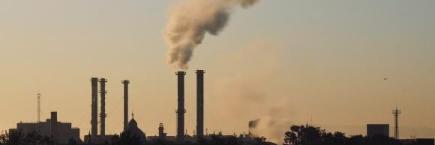Topic for potential thematic cluster of research developments

The IAS is keen to develop long-term clusters of research developments on key topics, in particular those addressing major global issues. A topic that has generated enthusiasm this year is that of Pollution. Colleagues are welcome to suggest others.
Pollution
The concept of pollution is universal, carrying multiple and powerful meanings in past and present societies. Focused on boundary transgression, pollution is concerned with the capacity of material and non-material things to invade, to contaminate or change conditions in ways that are often seen as detrimental or destabilising, but may also be regarded in more positive terms. Thus Mary Douglas famously cited Lord Chesterfield’s comment that dirt is merely ‘matter out of place’. In moral and cultural production, enlightening ideas can subvert and challenge negative forms of ‘purity’, such as extreme forms of nationalism, racism, sexism, homophobia, and religious fundamentalism. Flows across linguistic, artistic and cultural boundaries may be seen as pollution or enrichment, as can transgressions across disciplinary areas.
Pollution encompasses a set of closely related sub-topics any or all of which might provide a focus for research developments. These include, for example, concepts of Contagion, Contamination, Transmission, and Purity, all of which carry their own set of related ideas.
Concepts of pollution readily shift between material and social dimensions, connecting beliefs about genetic inheritance with social identity, blood with belonging. In cognitive neuropsychology it has been claimed that the brain mechanisms that respond with disgust to physical contamination are similarly activated in response to moral disgust. Forms of material pollution readily provide analogues for metaphorical ideas about ‘contaminating’ knowledges, or ‘foreign’ beliefs and practices. Here too there is scope for alternate visions of order and disorder: the movements of people across borders may link with political concerns to protect imagined national identities, or with valorisations of cultural diversity. The spatio-temporal movements of plant and animal species across environments may be seen as feral invasions, or as economically or aesthetically beneficial introductions.
Scientific studies of pollution generally focus on contaminating material incursions. But there are also potential overlaps between thinking about recursive disruptions to mathematical systems, and the analyses of feedback loops in ecosystems. Viruses can attack the intangible integrity of computing systems, or have all too tangible effects on biological organisms. Pollution traverses microcosmic to macrocosmic scales. Researchers might investigate the immediate effects of particulate or chemical pollution on air, water, soil, and plants, and on the health and reproductive capacities of living kinds, or consider how, in the longer term, the cumulative effects of pollution affect forests, river catchments and oceans, and translate, ultimately, into disruptions to global ecosystems.
As Covid-19 has demonstrated, the impacts of pollution on human health are multiple, and link with research on wider causal factors: the social, economic and political conditions that lead to high risk activities, and impede practical and regulatory measures to prevent pollution at every level of governance. Specialists in law, philosophy and ethics consider questions about human and non-human rights; the externalisation of the costs of pollution; and the potential to enforce ‘polluter pays’ principles. Business specialists may consider the economic costs of pollution, or its prevention. Astrophysicists are interested in interplanetary pollution/exchanges of matter; the seeding of life on earth; the ethics of polluting other planets; space law, and the impacts of space debris on satellites.
As a potential research topic, Pollution offers an ideal ‘boundary object’, in which people from different fields can maintain their unique perspectives while also exchanging knowledge across disciplinary boundaries. Both negative and positive forms of pollution could be examined under sub-topics such as ‘material pollution’; ‘knowledge pollution’; ‘social pollution’; ‘spatio-temporal pollution’; ‘moral pollution’, ‘health and pollution’; ‘boundaries’ etc. Research on pollution can contribute to theoretical debates while also being readily applicable to some of the world’s most pressing social and environmental challenges.
Links with ongoing research interests in Durham University
There a multiple areas of research across the University with interests in issues of pollution. Many are located in the Faculties of Science, and Social Science and Health, but there is increasing input from the Arts and Humanities (for example in the Life of Breath project) and room for much more. The IAS itself is currently fostering a number of projects with a focus on pollution including, for example: Contagion; Science, Society and Environmental Change; Citizen Science and Air Quality; Global Risk of Volcanic Eruptions to the Airline Industry; Arctic Soundscapes; Negotiating Landscapes of Rights; Enabling Responsible Space Exploitation. The topic of Pollution also invites partnerships with research fostered by the other URIs.
Colleagues interested in participating in developments relating to this topic should contact Veronica Strang.


/prod01/prodbucket01/media/durham-university/research-/research-institutes/institute-of-advanced-study/43486-hero.jpg)